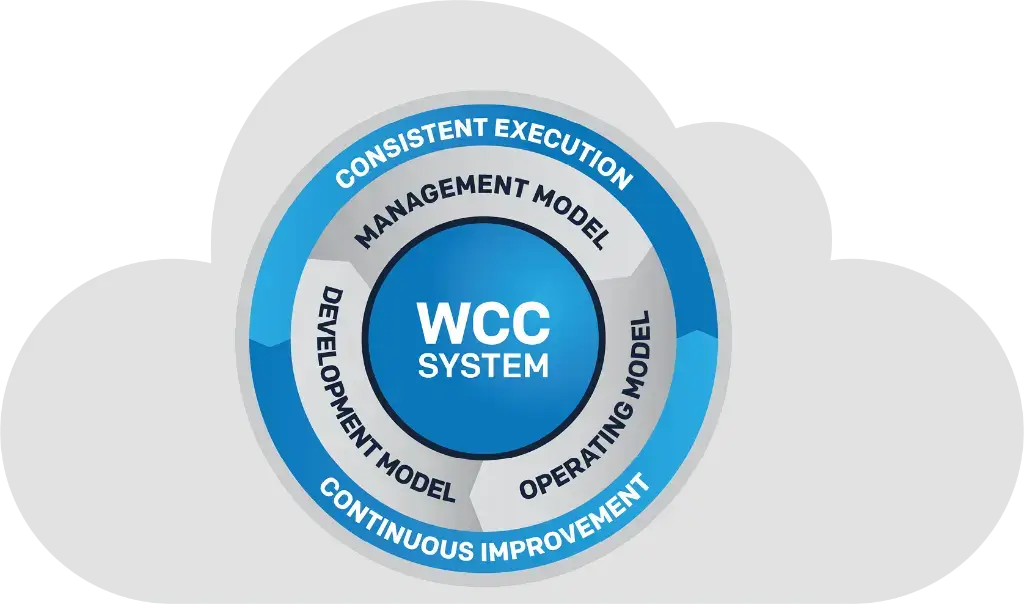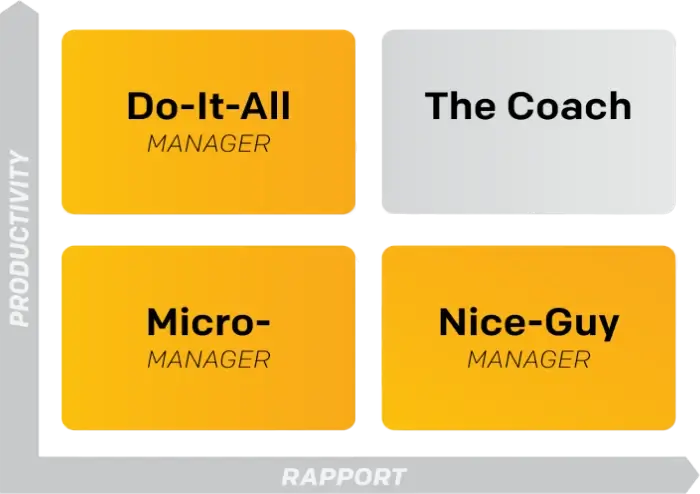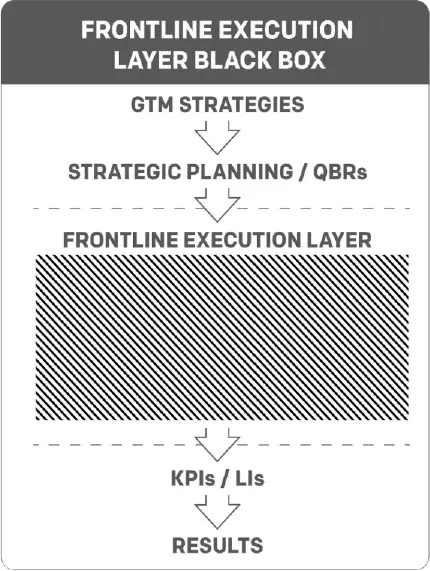Systematically ensure your GTM Team is consistently executing at a high-level—and continuously learning, growing, and improving.

Systematically ensure that your GTM Team is consistently executing at a high-level and continuously learning, growing, and improving.
- Sales productivity
- Participation rates
- Employee retention
- Top-line growth rate
Clients Include
















“We hired Brian to provide a framework for all our first line managers early at ServiceNow. As a leader, I needed to get the max from every person on the team. His training reinforced my vision and gave our people the tools they needed to execute. Brian helped build a company now worth $100 Billion! His training helped bring our managers and our employees to a higher level!”
– David Schneider, President Emeritus, ServiceNow

GTM Leaders: Are you frustrated by...
- High attrition
- Low participation rates
- Sub-optimal sales productivity
- Inconsistent frontline sales execution
- Do-It-All Managers super-repping deals
- Micromanagers looking at data - yelling at the scoreboard
- Nice-Guy Managers without any operational rigor or value-add
Want to go deeper?
THE FIRST STEP TO SOLVING A PROBLEM IS TO DEFINE IT CORRECTLY
Why haven’t most GTM Organizations been able to operationalize and institutionalize consistent execution and continuous improvement—at scale?
After extensive research, we discovered that there are five critical issues that are inextricably related, which must be addressed in order to unlock the latent productive capacity that exists within every GTM Organization.

Challenge #1: Wrong Management Approach
Management Approach
Matrix

Frontline managers (FLMs) are the Achilles heel or limiting factor in virtually every organization. Ironically, they’re also typically the most neglected from a training and enablement perspective.
Herein lies the first challenge: When it comes to the people-side to management, most managers have never been taught the right approach.
Consequently you have a lot of…
- Do-It-All Managers super-repping deals
- Micromanagers looking at data and yelling at the scoreboard
- Nice-Guy Mangers without any operational rigor or value-add
- Very few elite leaders of high-performance teams (“World-Class Coaches”)
Takeaway:
To achieve consistent high-level execution you must first develop a high-performance culture. To develop a high-performance culture, you must first transform your managers into “coaches”.
Remember: “Coaching is not merely something that you, as a manager, must do. A “Coach” is something that you, as a leader, must become.” —Brian Souza
Challenge #2: Sub-Optimal Frontline Environment (Culture)
Before you can coach your people, you must first create an environment that is conducive to coaching. In other words, you can have the best coaching skills in the world, but if your team members are not open and receptive to your coaching, it’s not going to matter.
The reality is that the vast majority of managers are oblivious to how their management approach creates a certain type of environment, which shapes the behavior of their people and influences their results.
They’re not aware of the importance of being very intentional in their thoughts, words, and actions in order to create a high-performance environment that is conducive to coaching and continuous improvement. As a result…
- Relationship dynamics with team members are transactional—not transformational
- They’re not aligned with their team or on the same frequency as their people
- They’re unable to create a connection, establish trust, or build a safe environment where their team members can be open, honest, vulnerable, and transparent.

Consequently, reps hide deficiencies in deals, obscure the true state of their pipeline, and conceal their weaknesses and knowledge/skill gaps—all of which are detrimental to execution and the performance metrics that matter.
Furthermore, when they do try and “inspect” deals, it’s from a manager vs. subordinate dynamic, which on the receiving end feels like a contentious interrogation—exacerbating the situation and further eroding trust, safety, and connection.
Challenge #3: Manager PM Skill Gab

The next gap most managers have to overcome on their leadership journey towards becoming a world-class leader of a high-performance team (aka a “world-class coach”), is a performance management skill gap.
In other words, most managers don’t have the skills to effectively coach, develop, and shape the behavior of their people which includes:
- Proactive Observation
- Socratic Questioning
- Intent Listening Performance
- Feedback Goal-Setting
Thus, very little coaching is taking place down in the trenches. As a result, reps are largely flying solo on deals unaware of knowledge/skill gaps and perception blindspots—causing them to make the same mistakes at the same stage in the sales process time and time again wreaking havoc on their ability to execute.
Challenge #4: No PM System To Shape Frontline Behaviors
“Anytime the majority of people behave in a certain way the majority of the time, the problem is not the people. The problem is the system and the leader needs to own that.” —W. Edwards Deming
Inconsistent performance is the result of inconsistent behavior. Inconsistent behavior is the result of there being no consistent process—or system—to shape frontline behavior.
In other words, there is no “management operating system” in place to systematically shape the right frontline behaviors (or inputs) that drive the desired results (or outputs).
The weekly 1:1 is the high-leverage point and most critical aspect of any PM System because it’s where the rubber meets the road from an execution standpoint.

Given that most GTM Org’s have not yet standardized, operationalized, or optimized weekly 1:1s at scale—a significant amount of productive capacity is being wasted as a result of:
- Lack of Focus
- Lack of Alignment
- Lack of Efficiency
- Lack of Effectiveness
- Lack of Effort
- Lack of Accountability
- Lack of Reinforcement
Challenge #5: Frontline Execution Layer Blackbox

The previous issues are exacerbated by the fact that GTM Leaders don’t know what they don’t know due to the “Frontline Execution Layer Black Box.” Given this lack of visibility/transparency, they don’t have insight into…
- Which FLMs are (and which are not) consistently having weekly 1:1s?
- What is actually happening in those weekly 1:1s—and how impactful are they?
- Are ICs/AEs focused on executing the right weekly goals/priorities—like pipeline generation (PG)?
- Do ICs have a written “plan to win the week” or are they just winging it? If so, are they sharing that plan with their FLM to ensure alignment? Are both parties preparing properly using relevant data sources?
- Are FLMs/ICs holding each other accountable for following through on their commitments?
- Which FLMs are consistently coaching and adding value to their teams—and which ones are not?
- Which SLMs are coaching / adding value to their FLMs and frontline employees?

